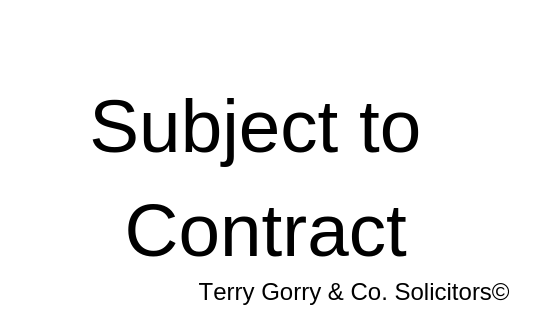
“Subject to Contract” is a phrase you may come across from time to time.
I encounter it most frequently in relation to the purchase and sale of property and in employment law settlement agreements.
What does it mean? Let’s take a look, shall we?
At its simplest it means that an agreement is being negotiated but all the terms have not yet been agreed formally in a contract. All correspondence prior to the formal contract being agreed is “subject to contract” as the correspondence is an attempt to arrive at an agreement between the parties and the proposals in the correspondence or documents will not have legal effect until it is agreed to be binding on the parties.
The words “subject to contract” are said to have suspensive effect because the parties will not be bound until there is some form of formal agreement or contract.
In land deals all correspondence will be marked “subject to contract/contract denied” or “subject to lease/lease denied” until a binding contract comes into existence when both parties sign it.
The bottom line is that no binding contract for the sale or purchase of property comes into existence until signed by both parties.
Up to this point the correspondence and documents which are exchanged between the parties in order to arrive at an agreement are an attempt to agree all terms of the contract and are marked “subject to contract/contract denied” as a consequence.
Precisely the same effect is caused in commercial disputes when correspondence is entered into to settle the issue and some type of formal contract will be entered into at the end of the process.
The most common agreement of this type that I come across is a settlement agreement between employer and employee whereby the employee is leaving the employment.
Other attempts to arrive at a settlement agreements would see all preceding correspondence marked “subject to contract” or “without prejudice”.
Employment settlement agreement
The correspondence, and the agreement itself, will be marked “subject to contract/without prejudice” until both parties sign the agreement. Then, and only then, does it become binding and can be sued upon.
You can learn more about employment settlement agreements here and without prejudice correspondence here.